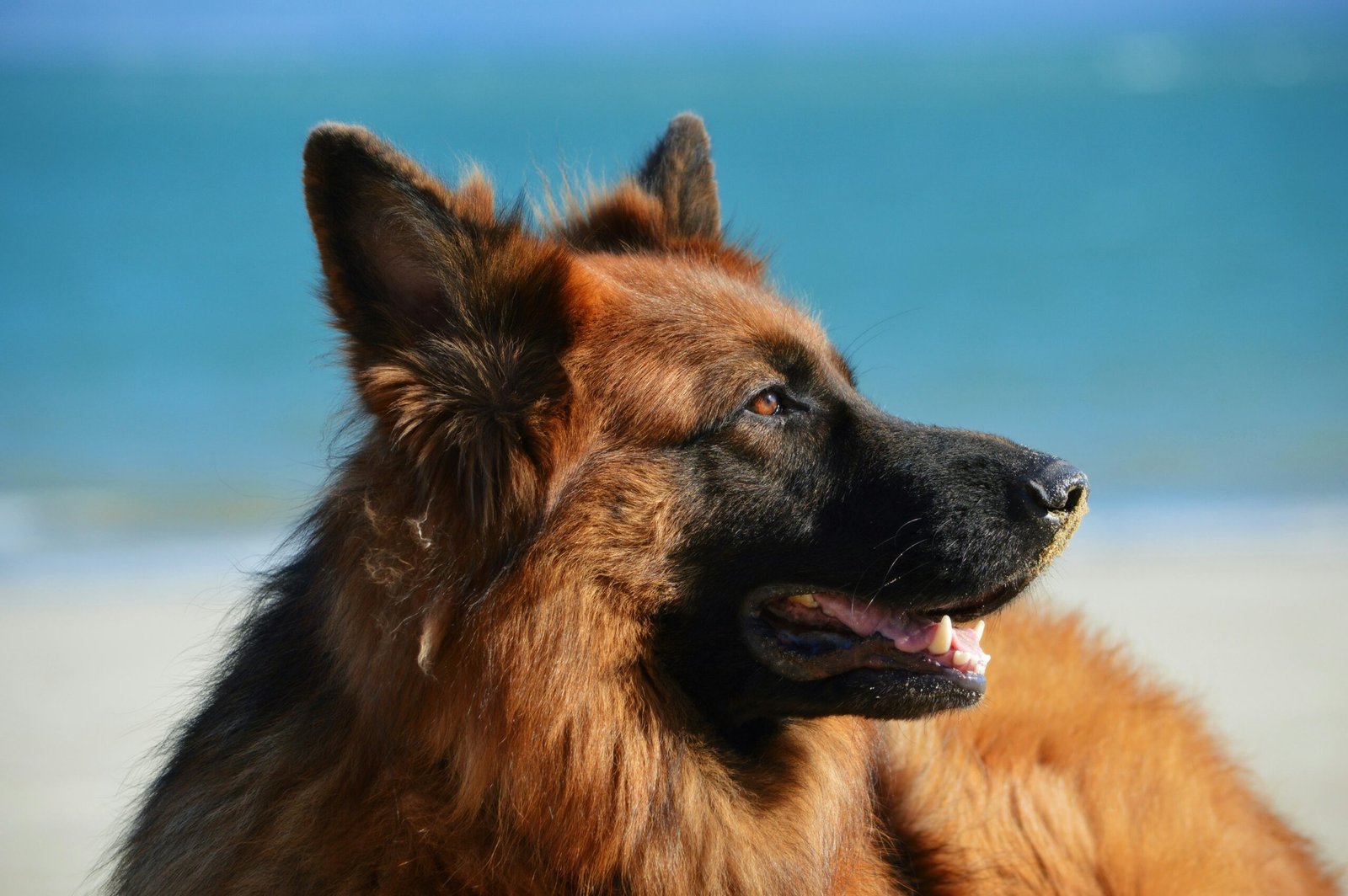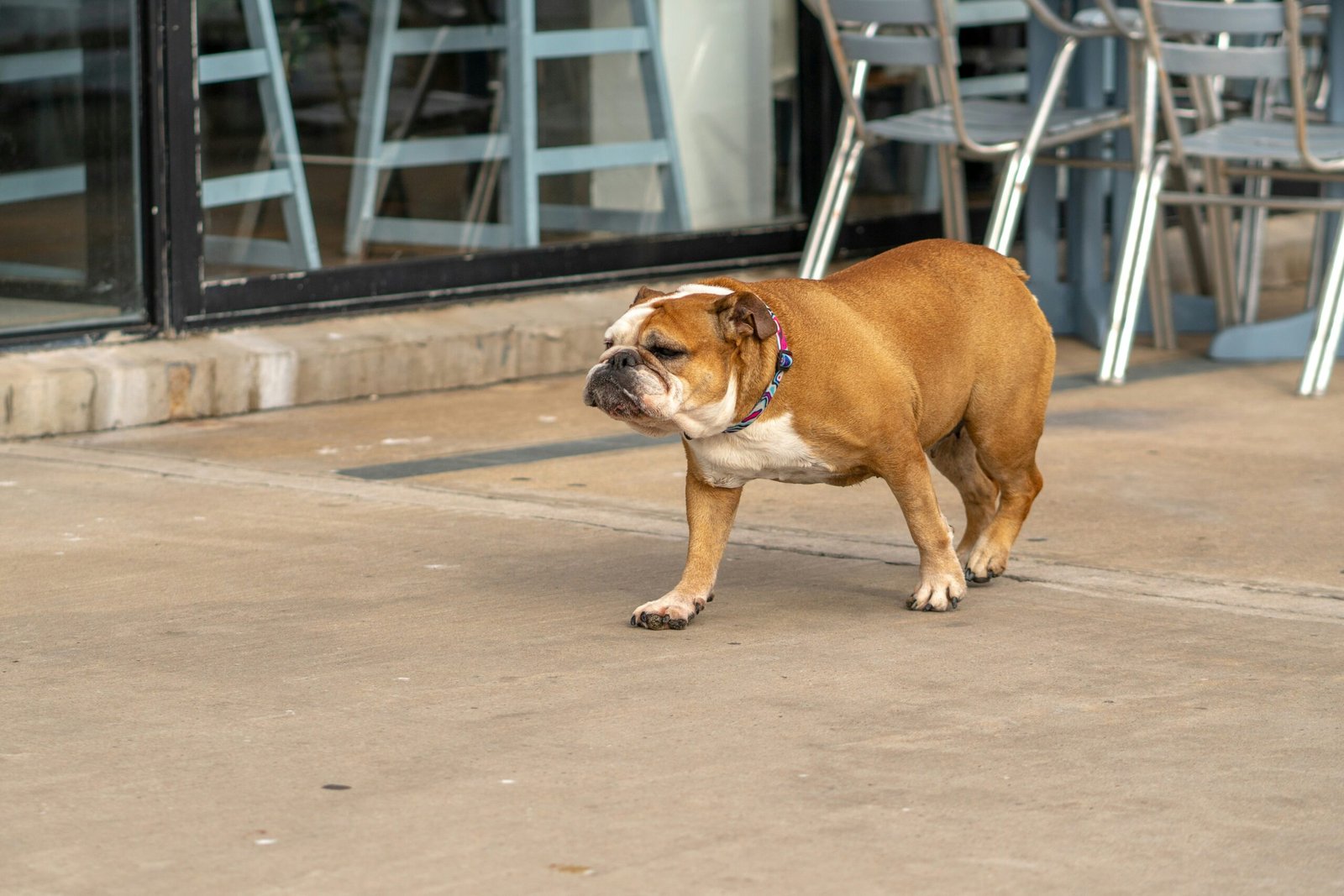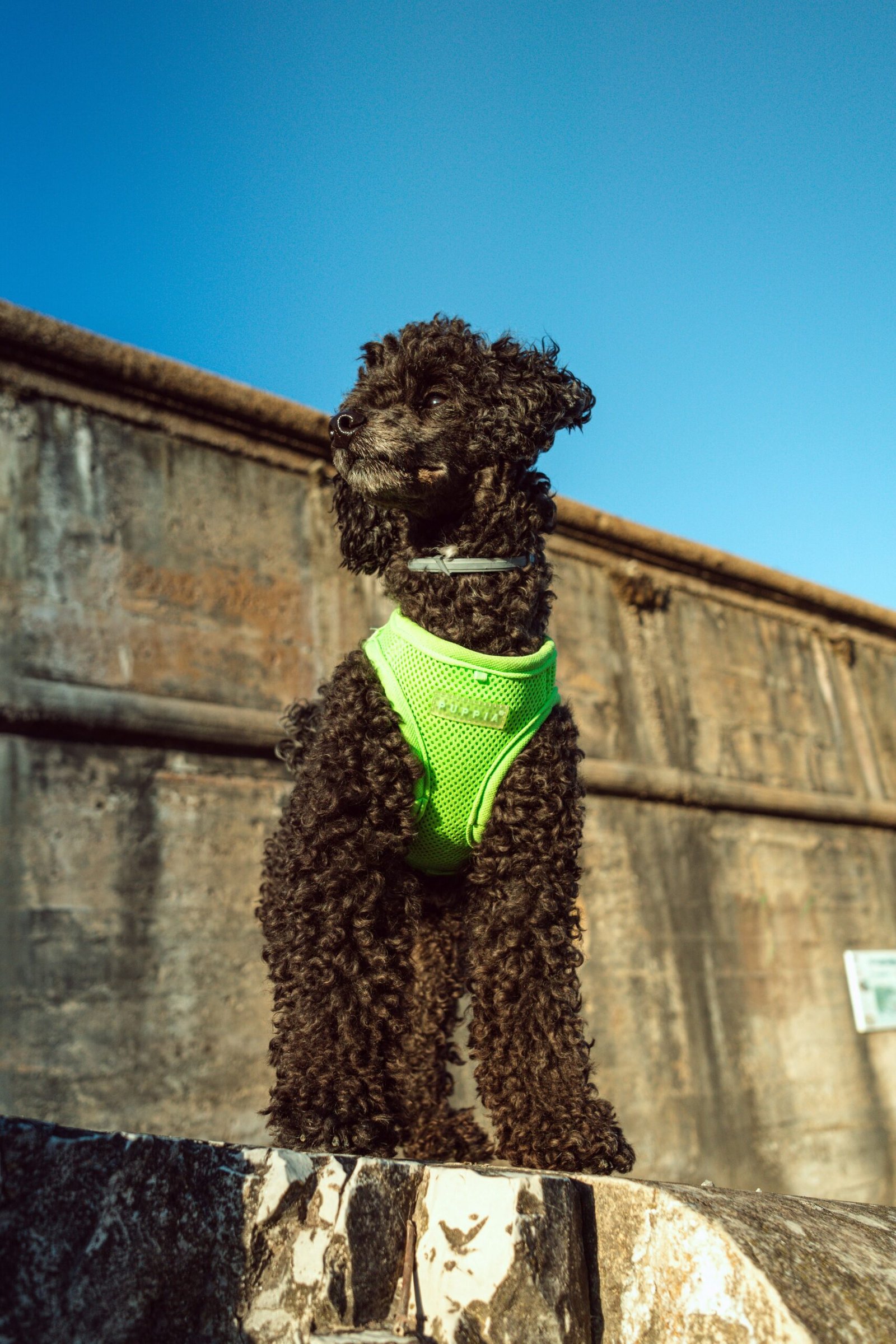Introduction: Understanding Dog Breed Popularity
Dog breed popularity is influenced by a multitude of factors, ranging from temperament and adaptability to appearance and media influence. Understanding these factors is crucial for potential dog owners to make informed decisions, as choosing a breed based solely on popularity can lead to mismatched expectations and challenges.
Temperament plays a significant role in the popularity of a dog breed. Breeds known for their friendly and gentle nature, such as the Labrador Retriever, often top popularity charts because they are perceived as great family pets. Similarly, breeds with specific traits, like the intelligence and trainability of Border Collies, attract owners who are looking for certain qualities in a companion.
Adaptability is another key factor. Breeds that can comfortably adjust to various living environments, from apartments to large homes, tend to be more popular. For instance, the French Bulldog is highly favored due to its ability to thrive in small living spaces, making it ideal for urban dwellers.
Appearance also significantly impacts a breed’s popularity. Unique physical characteristics, such as the distinctive coat of the Poodle or the striking blue eyes of the Siberian Husky, often capture the public’s interest. Moreover, trends in appearance can be heavily influenced by media and celebrity endorsements, with certain breeds gaining sudden popularity after being featured in movies, television shows, or social media.
However, it is essential for prospective dog owners to consider their lifestyle and personal circumstances before choosing a breed. Factors such as activity level, grooming needs, and potential health issues should be weighed against the allure of a breed’s current popularity. By doing so, owners can ensure a harmonious and fulfilling relationship with their new canine companion, rather than encountering unexpected difficulties.

1. Labrador Retriever: The Family Favorite
The Labrador Retriever consistently ranks as one of the most popular dog breeds, primarily due to its friendly and outgoing nature. Known for their amiable disposition, Labradors are excellent companions for families, often forming strong bonds with children and adults alike. Their affectionate and playful temperament makes them well-suited to households seeking a loyal and engaging family pet.
One of the key attributes of Labrador Retrievers is their remarkable intelligence. This breed is highly trainable, making them an ideal choice for various roles beyond just being a family pet. Labradors excel as service dogs, assisting individuals with disabilities due to their keen ability to learn and perform complex tasks. Additionally, their versatility extends to roles in search and rescue, therapy, and even law enforcement, where their acute sense of smell is invaluable.
In the realm of sporting activities, Labrador Retrievers are unparalleled. Their natural athleticism and enthusiasm for outdoor activities make them formidable partners in hunting and retrieving. This breed’s stamina and love for water are particularly advantageous in such pursuits, ensuring that they remain active and engaged.
While Labradors are generally healthy dogs, they are prone to certain genetic health conditions. Common issues include hip and elbow dysplasia, progressive retinal atrophy, and obesity. Regular veterinary check-ups, a balanced diet, and consistent exercise are crucial to maintaining their health and well-being. Labradors require ample physical activity to prevent obesity and to ensure their energetic nature is properly channeled.
In terms of care, Labrador Retrievers have a short, dense coat that sheds seasonally. Regular brushing helps manage shedding and keeps their coat in good condition. Their ears should be checked regularly for signs of infection, and their nails trimmed to prevent overgrowth.
Overall, the Labrador Retriever’s friendly demeanor, intelligence, and versatility make it a top choice for families and individuals seeking a devoted and capable companion.

2. French Bulldog: The Charming Companion
The French Bulldog, with its distinctive bat-like ears and compact build, has captured the hearts of dog lovers worldwide. Known for their charming and playful nature, French Bulldogs make excellent companions, particularly for those residing in apartments. Their friendly demeanor and moderate exercise needs make them an ideal choice for city living.
One of the standout features of the French Bulldog is its appearance. They boast a muscular body, a short coat, and a flat face, which, although adorable, can lead to certain health issues. Respiratory problems are common among French Bulldogs due to their brachycephalic (short-nosed) structure. It is crucial for potential owners to be aware of these health concerns and to ensure their pets receive regular veterinary check-ups and proper care.
In terms of personality, French Bulldogs are known for their loyalty and affectionate nature. They thrive on human interaction and enjoy being the center of attention. This breed is particularly well-suited for families, singles, and seniors alike. However, their playful and sometimes stubborn behavior means that early socialization and training are essential. Proper socialization helps French Bulldogs develop into well-rounded pets, comfortable in various environments and situations.
Additionally, French Bulldogs are relatively low-maintenance when it comes to grooming. Their short coat requires minimal brushing, and they are not heavy shedders. This aspect, coupled with their compact size, makes them a practical option for those with limited space. Despite their small stature, French Bulldogs have big personalities and can bring a lot of joy and companionship to their owners.
Overall, the French Bulldog is a delightful breed that offers a unique blend of charm, loyalty, and suitability for apartment living. Prospective owners should consider their specific needs and be prepared to provide the necessary care, ensuring a happy and healthy life for their beloved pet.

3. German Shepherd: The Loyal Protector
The German Shepherd, renowned for its unwavering loyalty, intelligence, and courage, stands as one of the most versatile and admired dog breeds worldwide. Originating from Germany in the late 19th century, this breed was initially developed for herding and guarding sheep. However, their exceptional traits have made them indispensable in various roles, particularly in police and military work.
Their acute sense of smell, quick learning ability, and strong protective instincts make German Shepherds ideal for tasks such as search and rescue, detection of explosives and narcotics, and apprehension of suspects. These dogs are often seen working alongside law enforcement officers, demonstrating an unparalleled commitment to their handlers and the missions they undertake.
Training a German Shepherd requires a consistent and structured approach. These dogs thrive on mental and physical stimulation, necessitating regular exercise and challenging activities to keep them engaged. Without proper training and stimulation, they may develop behavioral issues such as excessive barking or destructive tendencies. Obedience training and socialization from an early age are crucial to harnessing their potential and ensuring they become well-adjusted companions.
Despite their robust nature, German Shepherds are prone to certain health issues, with hip dysplasia being one of the most common concerns. This genetic condition can lead to arthritis and discomfort, impacting their mobility. Regular veterinary check-ups, a balanced diet, and maintaining an appropriate weight can help manage and mitigate the effects of hip dysplasia and other hereditary conditions.
In essence, the German Shepherd’s blend of intelligence, bravery, and loyalty makes them an exceptional breed, both as working dogs and family pets. Their ability to protect and serve, coupled with their affectionate nature towards their families, underscores why they remain a popular choice among dog enthusiasts.

4. Golden Retriever: The Gentle and Friendly Dog
The Golden Retriever is celebrated for its affectionate and gentle disposition, making it an exemplary choice for families and therapy work. Renowned for their friendly and tolerant attitudes, Golden Retrievers are not only excellent companions for children but also serve as reliable partners in various therapeutic settings. Their social nature ensures that they thrive in environments where they receive ample human interaction, reinforcing their status as one of the most beloved dog breeds.
Golden Retrievers have a natural affinity for outdoor activities, which complements their energetic and playful temperament. They are avid swimmers, enjoy long walks, and relish games of fetch, which provide an excellent outlet for their abundant energy. This love for the outdoors also makes them perfect companions for active families who enjoy spending time outside. Regular exercise is crucial to keep them physically and mentally stimulated, ensuring they remain happy and healthy.
Despite their robust nature, Golden Retrievers require consistent grooming to maintain their luscious coats. Their dense, water-repellent fur needs regular brushing to prevent matting and reduce shedding. Moreover, routine grooming sessions help in early detection of potential skin issues and promote overall hygiene. Bathing should be done periodically, and attention must be given to their ears, which are prone to infections due to their floppy nature.
Health-wise, Golden Retrievers can be susceptible to certain conditions, with cancer and hip dysplasia being notably prevalent. Cancer remains a leading cause of death in this breed, making regular veterinary check-ups vital for early detection and treatment. Hip dysplasia is another common issue, affecting their mobility and causing discomfort. Responsible breeding practices and maintaining a healthy weight through proper diet and exercise can mitigate some of these health risks.
In conclusion, the Golden Retriever’s gentle and friendly nature, combined with their love for outdoor activities and need for regular grooming, makes them an ideal family pet. Awareness of their common health issues ensures that these loyal companions lead a fulfilling and healthy life.

5. Bulldog: The Affectionate Couch Potato
The Bulldog, often affectionately referred to as a couch potato, is renowned for its calm demeanor and strong bond with its family. This breed is characterized by its loyal and affectionate nature, making it a favorite among dog lovers who appreciate a relaxed and easy-going companion. Bulldogs are especially well-suited for indoor living, as they thrive in environments where they can remain close to their human family members.
One of the distinguishing features of Bulldogs is their minimal exercise needs. Unlike more active breeds, Bulldogs are content with short walks and some playtime, making them an excellent choice for individuals or families with a more sedentary lifestyle. Their low energy levels mean they can easily adapt to apartment living, provided they receive sufficient affection and attention from their owners.
However, potential Bulldog owners should be aware of specific health concerns associated with this breed. Bulldogs are prone to breathing difficulties due to their brachycephalic (short-nosed) structure. This can lead to issues such as snoring, wheezing, and heat intolerance. Additionally, Bulldogs may experience skin problems, particularly in the folds of their skin, which require regular cleaning and maintenance to prevent infections.
Despite these health challenges, Bulldogs remain a beloved breed for their gentle and loving nature. Their strong bond with their families is a testament to their affectionate disposition, and their suitability for indoor living makes them a popular choice for those seeking a loyal and low-maintenance pet. With proper care and attention to their unique needs, Bulldogs can be a delightful addition to any household, offering companionship and unwavering loyalty to their owners.

6. Poodle: The Elegant and Intelligent Canine
The Poodle is renowned for its elegance and intelligence, making it one of the most popular dog breeds. Known for its hypoallergenic coat, the Poodle is an excellent choice for individuals with allergies. This breed is available in three sizes—Standard, Miniature, and Toy—each offering unique qualities while retaining the Poodle’s distinctive characteristics. Despite their size differences, all Poodles are known for their exceptional trainability and sharp intellect.
Standard Poodles, the largest of the three, are well-suited for families with larger living spaces. They are highly active and enjoy outdoor activities, making them great companions for active individuals. Miniature Poodles, on the other hand, are more adaptable to various living environments, including apartments. They maintain the same level of intelligence and trainability as their larger counterparts but require less space. Toy Poodles, the smallest of the trio, are perfect for those looking for a compact yet intelligent companion. Their small size allows them to thrive in limited living spaces, such as small apartments or condos.
One of the most notable features of the Poodle is its hypoallergenic coat. The Poodle’s fur is curly and dense, reducing the amount of shedding and dander released into the environment. This makes them a favorable option for allergy sufferers. However, their unique coat also demands regular grooming. Poodles require frequent brushing to prevent matting and professional grooming every 4-6 weeks to maintain their elegant appearance. While this grooming routine can be time-consuming, it ensures that the Poodle remains healthy and comfortable.
The Poodle’s intelligence and trainability make them excellent companions for various activities, including agility training, obedience competitions, and even therapy work. Their ability to learn quickly and adapt to different environments makes them a versatile and beloved breed. Whether you choose a Standard, Miniature, or Toy Poodle, you will find a loyal, intelligent, and elegant companion in this remarkable breed.

7. Beagle: The Curious and Energetic Hound
The Beagle, with its lively and curious nature, has secured a spot as one of the most popular dog breeds. Known for their boundless energy and playful demeanor, Beagles make excellent companions, particularly for active families who can match their zest for life. Their small to medium size, coupled with a friendly disposition, makes them an ideal pet for various living situations.
One of the distinguishing characteristics of Beagles is their extraordinary sense of smell. Bred originally for hunting, these dogs have a strong instinct to follow scents, which can sometimes lead them to wander off if not properly supervised. As such, it is crucial for Beagle owners to ensure their yards are securely fenced to prevent any potential escapes. This breed’s love for exploring means they can easily get distracted by interesting smells, making leash training an essential part of their routine.
Health considerations are also important when caring for a Beagle. Due to their floppy ears, Beagles are prone to ear infections, so regular cleaning and check-ups are recommended to keep their ears healthy. Obesity is another common issue, as this breed tends to have a hearty appetite. Owners should be mindful of their Beagle’s diet and ensure they get plenty of exercise to maintain a healthy weight. Regular vet visits can help monitor their overall health and address any emerging issues promptly.
In summary, the Beagle’s curious and energetic personality, combined with their keen sense of smell, makes them a unique and engaging pet. Prospective owners should be prepared for their active lifestyle and be vigilant about their health needs. With proper care and attention, a Beagle can bring joy and companionship to any family.
8. Rottweiler: The Confident and Fearless Guardian
Rottweilers have long been esteemed for their unwavering loyalty and robust protective instincts, making them one of the most popular dog breeds among experienced dog owners. Originating from Germany, these powerful and confident dogs were initially bred to herd livestock and pull carts, roles which have ingrained a natural sense of duty and vigilance in their temperament.
One of the defining characteristics of the Rottweiler is its protective nature. This breed is known to form strong bonds with its family, displaying a remarkable level of loyalty and devotion. However, this protective instinct necessitates consistent training and early socialization to ensure they distinguish between genuine threats and benign situations. Without proper guidance, their natural assertiveness might become problematic, particularly in unfamiliar environments or around strangers.
Rottweilers are best suited for experienced dog owners who can provide firm and consistent leadership. Their intelligence and eagerness to please make them highly trainable, but they also require a balanced approach that combines positive reinforcement with clear boundaries. Regular training sessions, mental stimulation, and physical exercise are crucial to keeping a Rottweiler’s mind and body engaged.
Despite their impressive physical prowess and keen intellect, Rottweilers are prone to certain health issues, most notably hip and elbow dysplasia. These genetic conditions can lead to joint pain and mobility issues, underscoring the importance of regular veterinary check-ups and a well-planned diet to manage their weight. Prospective Rottweiler owners should be prepared for potential medical expenses and consider health insurance to mitigate costs.
In summary, the Rottweiler is a breed that embodies confidence, loyalty, and protection. With the right training and socialization, they can be loving companions and vigilant guardians, making them an excellent choice for those with the experience and commitment to meet their needs.
9. Yorkshire Terrier: The Small but Spirited Dog
The Yorkshire Terrier, often affectionately referred to as the Yorkie, is a small but spirited dog breed renowned for its energetic and feisty personality. Despite their diminutive size, Yorkies possess a bold and confident demeanor, making them a favorite among dog enthusiasts. Their vivacious nature is complemented by a strong sense of loyalty, making them excellent companions for those who can match their lively spirit.
One of the primary advantages of owning a Yorkshire Terrier is their suitability for apartment living. Their compact size allows them to adapt comfortably to smaller living spaces, provided they receive adequate exercise and mental stimulation. Daily walks and interactive playtime are essential to keep these energetic dogs content and healthy. Yorkies thrive on human interaction and can often be seen shadowing their owners around the house, always eager to be part of the action.
Yorkshire Terriers are also known for their distinctive long, silky coat, which requires regular grooming to maintain its luster and prevent matting. Owners should be prepared for frequent brushing and occasional trips to a professional groomer. The grooming routine not only keeps the Yorkie’s coat in top condition but also provides an opportunity to check for any skin issues or abnormalities that may arise.
Like many small dog breeds, Yorkshire Terriers are prone to certain health issues. Dental problems are common, and regular dental care is crucial to prevent plaque buildup and tooth decay. Another health concern for Yorkies is patellar luxation, a condition where the kneecap dislocates from its normal position. Regular veterinary check-ups and a balanced diet can help mitigate these risks and ensure that Yorkies lead a healthy life.
In essence, the Yorkshire Terrier is a spirited and charming breed that brings a lot of personality to its owners. With proper care, attention, and a loving environment, Yorkies make delightful pets that can adapt well to a variety of living situations.
10. Boxer: The Playful and Energetic Athlete
The Boxer is renowned for its playful and energetic nature, making it an excellent companion for active families. These dogs are characterized by their muscular build, expressive faces, and boundless enthusiasm. If you’re looking for a breed that can keep up with an active lifestyle, the Boxer might just be the perfect fit.
Boxers thrive on physical activity and need regular exercise to maintain their health and happiness. Daily walks, runs, and play sessions are essential to keep their energy levels in check. Engaging in activities such as fetch, agility training, and even swimming can provide both the mental and physical stimulation that Boxers crave.
Training a Boxer requires patience and consistency. These dogs are intelligent and eager to please, but they can also be stubborn at times. Positive reinforcement techniques, such as treats and praise, work best to motivate them. Early socialization and obedience training are crucial to ensure they grow into well-behaved adults. Boxers are known for their strong bonds with their families, and proper training helps strengthen this connection.
While Boxers are generally healthy dogs, they are predisposed to certain health issues. Heart conditions, such as aortic stenosis and cardiomyopathy, are relatively common in this breed. Regular veterinary check-ups and monitoring are essential to catch any potential issues early. Additionally, Boxers are prone to certain types of cancer, including lymphoma and mast cell tumors. Being vigilant about their health can help manage and treat these conditions effectively.
In summary, the Boxer is a dynamic and affectionate breed that brings joy and energy to any household. Their need for regular exercise and consistent training makes them ideal for families who lead active lifestyles. With proper care and attention, Boxers can thrive and remain loving companions for many years.
Conclusion: Choosing the Right Breed for You
Selecting the right dog breed is a significant decision that requires careful consideration of several factors. Your lifestyle, living situation, and personal preferences play a crucial role in determining which breed would be the best fit for you. For instance, active individuals or families might prefer a high-energy breed that enjoys outdoor activities, while those with a more sedentary lifestyle may find a low-energy, calm breed more suitable.
It’s essential to evaluate your living conditions as well. Apartment dwellers may need a breed that adapts well to smaller spaces and requires less exercise. In contrast, those with larger homes and yards might have the flexibility to accommodate bigger or more active breeds. Additionally, consider any allergies or sensitivities your household members might have, as some breeds are hypoallergenic and more suitable for allergy sufferers.
Beyond matching a breed to your lifestyle and living situation, personal preferences such as grooming needs, temperament, and trainability should also be taken into account. Some breeds require extensive grooming and regular maintenance, while others are relatively low-maintenance. Understanding the temperament of a breed will help ensure that the dog’s personality aligns with your expectations and household dynamics.
Thorough research is critical before making a decision. Reliable resources, breed-specific forums, and consultations with veterinarians can provide valuable insights into the characteristics and needs of different breeds. Moreover, potential dog owners are encouraged to consider adopting from shelters or rescue organizations. Many wonderful dogs are in need of loving homes, and adoption can be a rewarding experience that saves a life.
Choosing a dog is a long-term commitment that should not be taken lightly. By considering your lifestyle, living situation, and preferences, and by conducting thorough research, you can find a breed that will bring joy and companionship to your life for years to come.


